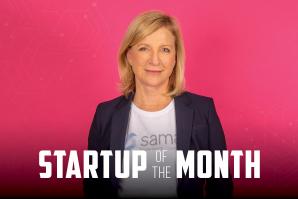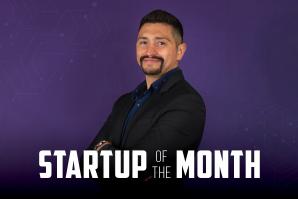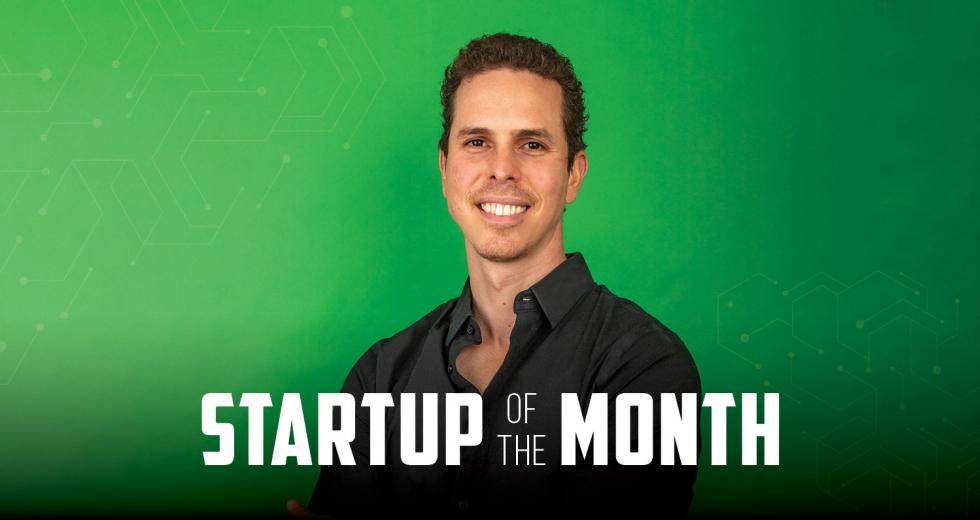How do you measure the thirst of a plant? Michael Santiago, founder and CEO of FloraPulse, says give it a chip. His new Davis-based irrigation management startup helps growers get accurate information on how much water their plants have and need at any given moment with a microchip implant.
“Agriculture has been around a long time, but even to this day growers still struggle with knowing the right time to irrigate,” Santiago says. “When the leaves start to droop, it’s too late because the plants are already under water stress, the damage is done and your crop will suffer.”
Click here to read more from our Startup of the Month column
Santiago adds that drooping leaves on a small scale won’t make a huge difference, but for growers, if it happens continuously, the lack of water will adversely affect the crop output. To mitigate this problem, FloraPulse, which launched in March, installs one or two probes per irrigation block into sentinel plants that are representative of the whole irrigation block. The startup uses the information gathered to recommend best methods for growers to maximize crop yield, quality and water savings.
“If you can treat plants better, you get higher yield, more profits, more quality food,” he says.
Santiago explains that liquids can be under positive pressure (they push on the walls of their container) or negative pressure (they pull on the walls of their container). Plants put water under negative pressure all the time — that is how they transport water from roots to leaves for transpiration. While working toward a doctoral degree in mechanical engineering at Cornell University, Santiago developed sensors to measure properties of water in the negative pressure state, including liquid pressure, temperature and activity. From this technology grew the idea for FloraPulse’s microchip implant.
“The standard approach to irrigation in agriculture is the same as for golf courses or street trees,” says Ken Shackel, a professor in the plant sciences department at UC Davis. “More water when it is hot and dry, less when it is cool, and none when it rains. The question is, how does the plant feel about all this?”
Shackel has been cooperating with FloraPulse for the past few years, but he has been studying the possibility of measuring plant thirst his entire career. Many ideas have come and gone — most of them not user-friendly, he says, or even researcher-friendly. There are other companies using different approaches to monitor plant water stress, but so far the FloraPulse technology gives the most accurate picture of what the plant experiences over the course of the day, Shackel says.
“The sensor works great,” Shackel says. “The main problem is how to get the sensor to attach to the plant and measure for the long term, not just a few days, but years. A plant is usually not friendly toward things poking into it.”
Figuring out how to deal with plant rejection is something FloraPulse is continuously working on. The team consists of five employees who work at the Davis headquarters and two additional founders based in New York. As of July, FloraPulse has 15 customers and 60 systems. Most of the customers are in California, but some are located in Washington, Florida, New Mexico and Chile, Santiago says. The startup has received $1.3 million in recent years and is looking to raise another $1 million.
While COVID-19 forced many businesses to shut down, FloraPulse continued with its launch this year — but kept it small — to honor the preorders that had already been placed.
“It was now or never for us,” Santiago says. “We’re a new company with a limited budget. If we lost the window, we would have to wait another year. It delayed us a bit. You can’t work as much wearing masks. But we’ve been able to move forward, delivering the product even if it’s late.”
–
Get our Startup of the Month column and other web exclusives in your mailbox every week: Sign up for the Comstock’s newsletter today!
Recommended For You

Startup of the Month: DispatchCare
Health app delivers services to doorsteps
“We make it easier for our most vulnerable community members to get the care they need to stay independent and stay home,” says Kwamane Liddell, DispatchCare’s founder and CEO.

Startup of the Month: Sama Learning
VR platform expands learning possibilities
This spring, COVID-19 forced schools to go online. But, for the most part, the teaching models remained the same. Sama Learning, a Nevada City-based startup, wants to transform those models.

Startup of the Month: RAIVES
Medical clip helps organize hospital room equipment
As a hospital assistant at UC Davis Medical Center, Tony Braham helps nurses lift and move patients. In other words, “We’re the muscle of the hospital,” Braham says, and his startup aims to help “the muscle” be more mobile.

Startup of the Month: OpenGrants
Platform simplifies search for public funding
Based in Sacramento, OpenGrants is a free platform that uses machine learning to sift through, list and match users with grant writers and opportunities. The platform reduces the opportunity cost inherent in the grant funding process by 30-40 percent.



